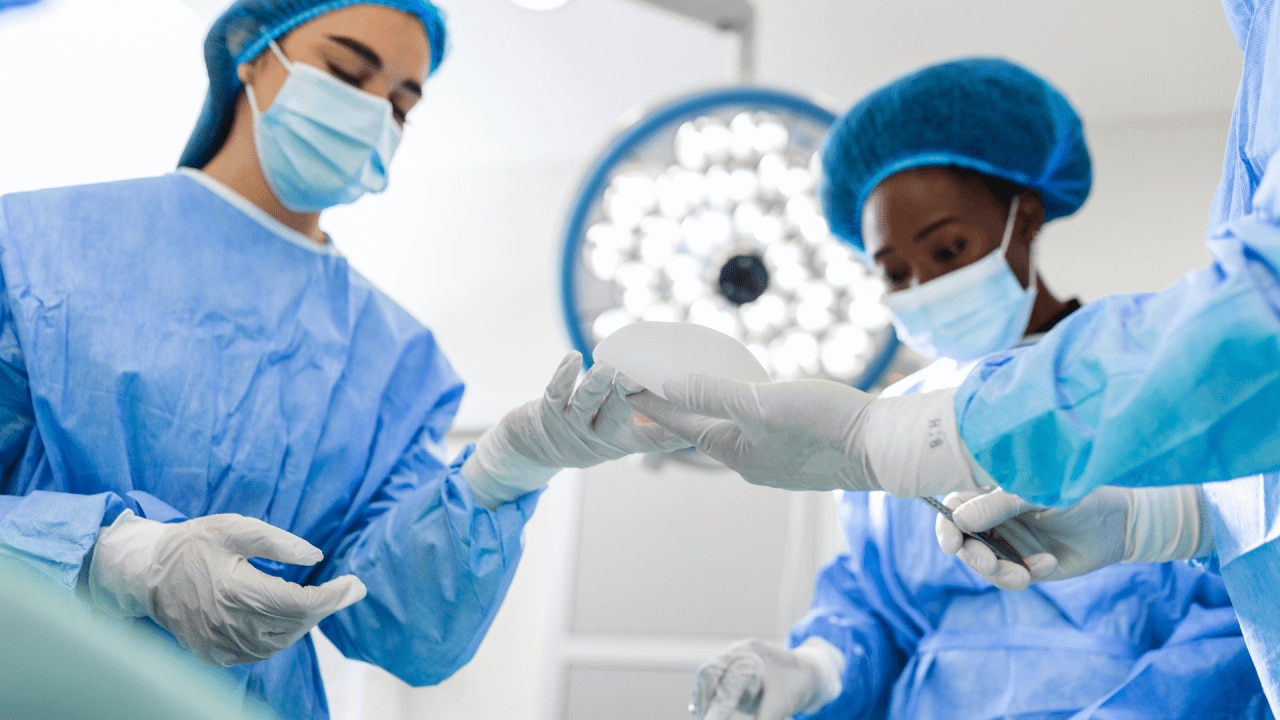
Recent research has opened our eyes to the role blue-light glasses supposedly play in preventing macular degeneration and preventing eye strain.
It’s been a long-held belief that blue-light glasses offer a foolproof defence against eye strain. Eyewear companies everywhere have capitalised on people’s desire to optimise their optic health, selling specialised frames at almost every price point.
But the latest findings from a review into the blue-light lenses’ effect on visual performance, sleep, and macular health, have found them to be no more effective than standard frames.
The review examines 17 randomised controlled trials, each aiming to prove or disprove claims that blue-light filtering glasses reduce computer-induced eye strain, and improve sleep quality and retinal health.
Like what you see? Sign up to our bodyandsoul.com.au newsletter for more stories like this.
While the impact of the lenses on sleep quality and retinol health remains inconclusive, the findings related to eye strain are anything but.
“Our review doesn’t support using a blue-light filtering lens if you’re a healthy adult for the purpose of reducing eye strain with computer use,” says Laura Downie, associate professor of optometry and vision sciences at the University of Melbourne. Downie is the review’s senior author, leading the inquest into the blue-light lenses.
Concerns about the long-term effect of blue-light on our retinol health have been the major selling point for the frames for years, with eyewear companies claiming the light emitted from our personal devices and screens is a major cause of eye strain and even diseases such as macular degeneration.
But, the latest conclusive evidence only echoes what ophthalmologists and eye-care specialists have always said.
“There’s really been no evidence that blue-light blocking glasses have any health benefits or even ocular benefits when it comes to eyes,” Rahul Khurana, the vitreoretinal surgeon tells the Washington Post.
“Your eyelids normally blink 15 times a minute,” he says. “But when you’re concentrating on something, like looking at a screen or looking at a computer, your blink reflex goes down to maybe five to seven times a minute, and as a result, your eyes dry out.”
The trials reported no noticeable difference in visual fatigue between participants wearing blue-light filtering lenses compared with those wearing regular lenses.
What about the effect on our sleep?
Bright light at night, especially the short-wavelength light that comes from our phone and computer screens, is known to confuse our biological clock, making it hard for our brains to know it’s bedtime.
The light can suppress the hormone signalling darkness, melatonin, causing us to find it hard to drift off or stay asleep throughout the night.
The review concluded blue-light filtering lenses had ‘little or no effect’ on visual performance and daytime alertness, but the trials involving sleep were found to be inconclusive.
While the fashionable lenses have proven to offer little in the way of ocular protection, Khurana says there are simpler (and more cost-effective) ways to reduce eye fatigue and strain, for example:
Use the “20-20” rule. After every 20 minutes you spend directly staring at a screen, look at an object 20 feet away for 20 seconds.
Sit about arm’s length from the computer screen. Sitting too close to the screen can have a negative impact on your eyes.
Give your contacts a break. It’s important to take a break from your contact lenses when your eyes feel dry. Regularly swap them out for your regular prescription glasses.
In some cases, persistent eye strain can mean more than just fatigue, so it’s a good idea to consult an eye-care health professional to perform a thorough examination of your eye health.
“Sometimes eye strain can be actually caused by an underlying eye health or vision problem,” Downie says.
